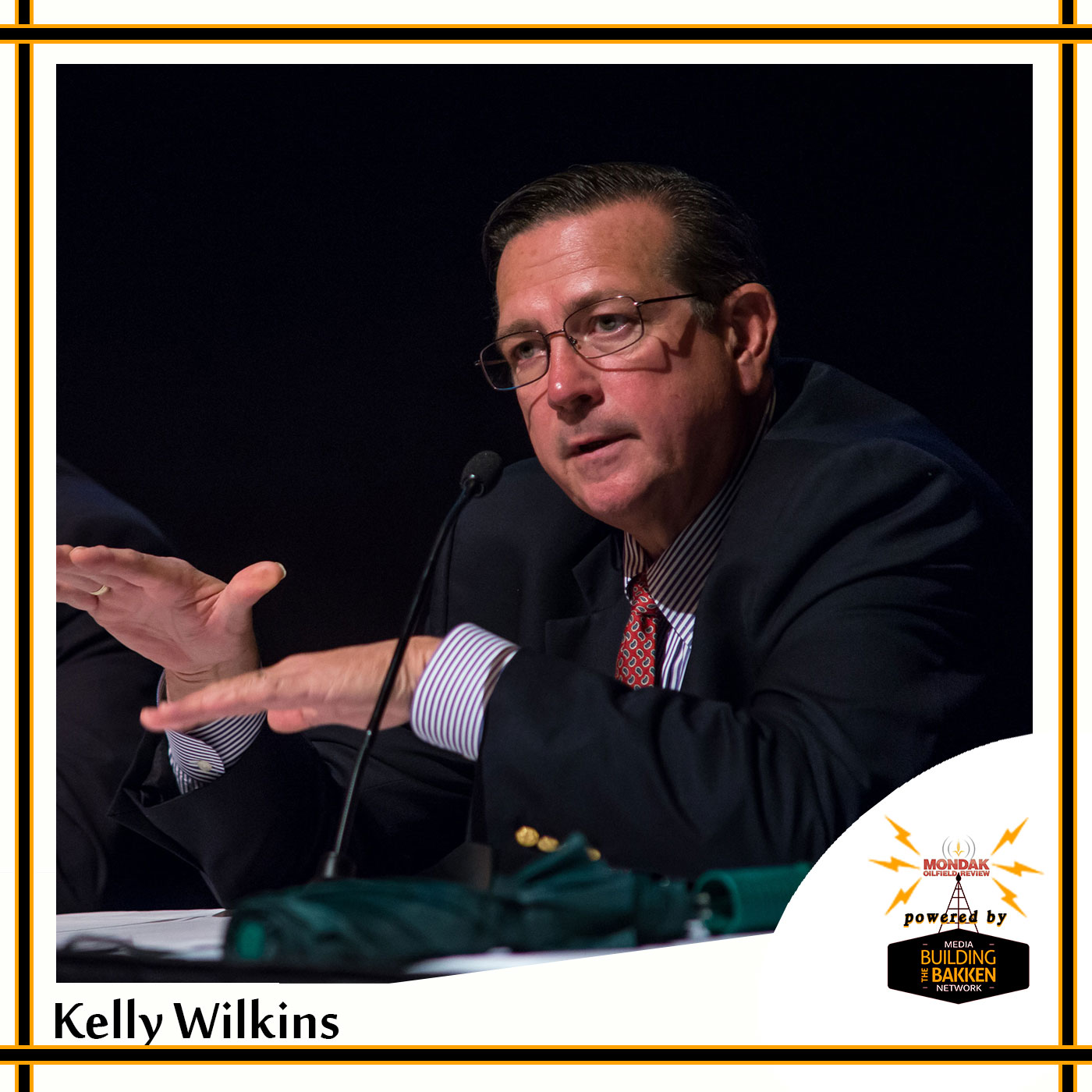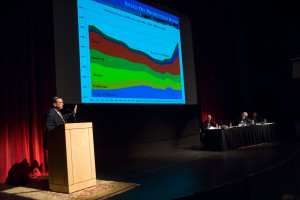
Ever since Inc. magazine profiled Bridger as the fastest growing private energy company and the fourth fastest growing private company in 2013, I have been watching them somewhat close.
This past July, Houston-based Bridger inked a deal with Monroe Energy for 65,000 barrels of daily domestic crude oil to its refinery in Trainer, Pa.. This was significant to North Dakota because the sweet Bakken crude will end up lowering costs for Delta Airline’s number one expense – crude oil. Much of following the oil and and gas market is like Six Degrees to Kevin Bacon.
“The Bakken is a huge long term expansion opportunity for the company. The crude oil trucking company that truck stations connect to, interstate pipelines. They have rail cars they use and we have contracts with certain rail facilities. The Bakken projects integrate well with what Bridger has happening across the country,” Kelly Wilkins, senior vice president business development, Bridger, LLC.
Wilkins continued to explain how companies like Bridger are positioning themselves as the infrastructure is being developed to accommodate the new diverse energy marketplace.
“In Philadelphia, the Eddie Stone rail project complements the Niobrara, the West Texas Pecos area and Eagle Ford assets. It all just compliments the business model which is building a logistics that is quick and nimble adaptable distribution transportation system,” Wilkins said. “It basically integrates the supply with the market. It just puts the lowest cost, quickest, most efficient way to connect the two.”
According to Wilkins and the company’s website, Bridger is a U.S.-based provider of crude oil marketing and logistics services. In addition, the company owns and operates assets across the midstream value chain and provides end-to-end crude oil logistics from the wellhead to end markets across North America. Bridger oversees 400,000 barrels of crude oil per day in 14 states and all major U.S. crude oil production regions and basins, including the Permian, Bakken, Rockies, Niobrara, Mid-Continent, Gulf Coast and Eagle Ford.
Having operations in multiple states and shale plays has allowed Wilkins to understand the recent issues with rail and pipelines. In North Dakota, it was a simple infrastructure issue.

“The pipeline infrastructure is traditionally connected where you took foreign crudes and took it into the Great Lake refineries, as I like to call them. They are Ohio and Chicago and up along there. You mentioned Minneapolis earlier, that would be the Clearbrook choke point, as it was,” Wilkins said. “Basically in North Dakota, those folks started producing more oil than what those local facilities could consume. So they had to find new ways to get it to market, well that set off a series of expansion projects and pipeline projects to get the Bakken routed around the chokepoints in Guernsey and Clearbrook and to get them into the Great Lakes, Cushing and the Gulf Coast.”
Projects that are not only crucial for the flow of crude oil, but according to Wilkins, they take time and resources for a variety of reasons.
“Pipeline projects are huge and critical and in place. The problem is they just take a long time. There is a lot of permitting and regulatory review, it’s all reasonable stuff, but it slow and expensive and it adds one to two years to the timeline of getting that pipeline in there,” Wilkins said.
The recent surge to ship by rail more or less surfaced due to the Bakken’s abundant resources. The choke points, bureaucratic delays and general financing created a moment where alternates where needed according to Wilkins.
“So you come up with the alternative solution which is rail. You can put rail projects in quickly and suddenly you have a pipeline on wheels. And that’s how you have a portfolio of options for producers or marketers to exploit those opportunities,” Wilkins said. “Basically access the oil that’s getting produced and finding a quicker way more direct way to those end markets.”
Even with the issues rail has, Wilkins believes that mode of transporting crude may shrink, but isn’t going anywhere.
“Shipping crude by rail is here is stay. It is going to have a niche permanent position. And it is good that is does. There are certain places you can not get a pipeline to or won’t build a pipeline to,” Wilkins said.
He then continued to compare the Keystone XL Pipeline to rail.
“What is interesting is a unit train will handle about 70 to 80,000 barrels a day. Keystone Pipeline would be the equivalent to four or five trains. You can see how you can incrementally add just a few trains and not major impacts,” Wilkins said. “The challenge is weighing the costs. Again low cost keeps things competitive and profitable. Transportation cost alternatives. You have safety factors you have to put in there, challenges with both pipe and rail. Quick and nimble to niche markets versus a workhorse carrying a larger load. That’s the best way to describe it.”
Wilkins thinks the Keystone Pipeline is being used a political tool and many of the politicians are not thinking about the bigger American picture.
“The importance of it is national security. It is critical to our national security for the United States. The United States benefits from its trading relationship with Canada. It’s a long relationship, they’re our cousins. Enhancing a good relationship at home is always best isn’t it?” Wilkins rhetorically said. “The pipeline capacity of 450,000-500,000 barrel a day capacity is being addressed in other ways. I think the thing is with the Keystone is that it is a political issue.”
Wilkins added the people in Canada are taking notice of America’s position on Keystone.
“And the way the Canadian people have responded the United States’ reaction and the delay, in trying to rationally solve any changes or issues that was presented to them, and the frustrations from the Canadians is that they are forced to find alternative markets for their crude,” Wilkins said. “Basically, we forced them to go find some more family members somewhere else. And in the long run that will work to the detriment for the United States and its national security and economic issues. They will not benefit from the close and lower costs transportation, etcetera, and benefiting from cheaper crude oil. I think that is the real crime that’s occurred with the whole Keystone Pipeline thing.”
In the end, the one thing that Wilkins believes oil and gas works for every day is stewardship and fellowship.
“Oil companies to me, and Bridger specifically, perceives its right to be in business as a stewardship issue. It’s a privilege to go out there and develop these resources. There’s a commitment to the community you work in to go in and do it safely and responsibly. At the same time, you’ll go into these communities and become a part of it,” Wilkins said. “Minot’s my home and I love the people of North Dakota. The folks in Berthold who work in Berthold rail facility. It benefits everybody and the more everyone has a piece in it, it becomes the collective success. Also it becomes a shared responsibility. You love it when everyone works together, it peaks and comes together well for everyone. Even if it is only in some small capacity. Everyone gets to benefit.”


Leave a Reply